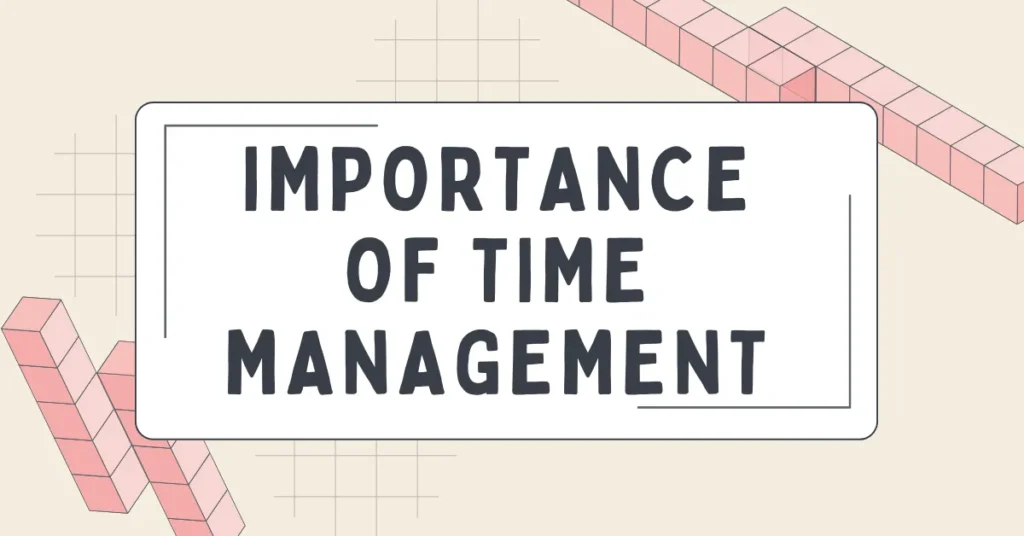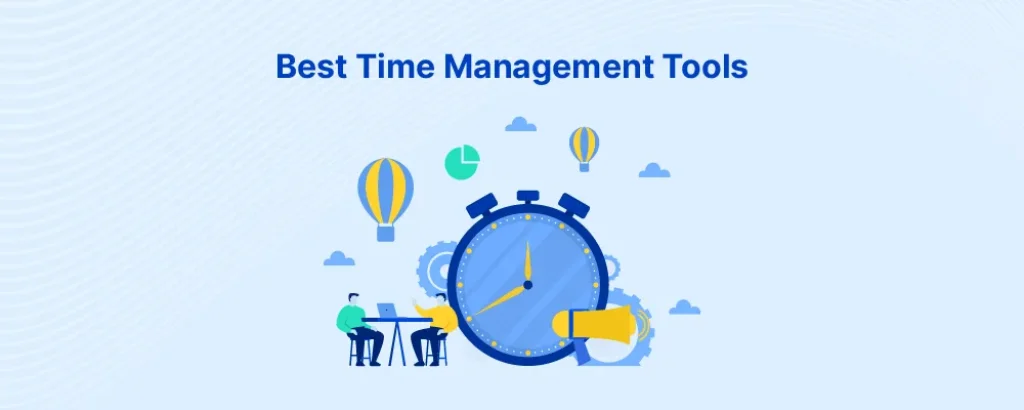
Executive Summary
Time management is the process of planning, organizing, and exercising conscious control over the amount of time spent on specific activities to increase efficiency, productivity, and work-life balance. In today’s fast-paced and demanding world, the ability to manage time effectively is essential for both personal and professional success.
Poor time management can lead to missed deadlines, increased stress, reduced productivity, and negative impacts on health and relationships. On the other hand, effective time management enhances performance, ensures goals are met, and provides individuals with the freedom to focus on meaningful activities.
This guide explores why time management is important, the principles and benefits of effective time management, strategies and techniques, challenges, tools, real-world applications, and how mastering time management can transform both professional and personal life.
Table of Content
- Executive Summary
- Table of Content
- Introduction
- Origins and Evolution of Time Management
- Core Principles of Time Management
- Importance of Time Management
- Time Management Techniques and Strategies
- Time Management Tools
- Benefits of Time Management
- Challenges in Time Management
- Real-World Applications
- Common Misconceptions
- Steps to Improve Time Management
- Future of Time Management
- Conclusion
Introduction
Time is one resource that is finite and cannot be replenished. Each individual has the same 24 hours in a day, yet outcomes vary widely depending on how that time is utilized. Time management is not merely about scheduling or working harder—it is about working smarter, prioritizing tasks, and focusing energy on high-value activities.
In professional settings, time management directly impacts productivity, efficiency, and performance metrics. In personal life, it influences well-being, relationships, and the ability to pursue hobbies, learning, and personal growth. Understanding why time management is important is the first step toward achieving both short-term goals and long-term success.
Origins and Evolution of Time Management
The concept of time management has evolved over centuries, influenced by industrialization, technology, and modern psychology:
- Early Timekeeping (Ancient Civilizations) – Sun dials, water clocks, and other instruments helped humans track and plan time.
- Industrial Revolution (18th–19th Century) – Factory schedules and shift work highlighted the value of structured time allocation.
- Scientific Management (Early 20th Century) – Frederick Taylor introduced time studies to improve productivity.
- Modern Time Management (Late 20th Century–Present) – Emphasis shifted to personal efficiency, prioritization, goal setting, and digital tools for planning and productivity.
Today, time management integrates traditional principles with modern productivity techniques, technology, and behavioral psychology to optimize personal and professional outcomes.
Core Principles of Time Management
Effective time management is built on several fundamental principles:
- Prioritization – Focus on high-value tasks that contribute most to goals.
- Planning – Schedule tasks, allocate time appropriately, and anticipate obstacles.
- Goal Setting – Define short-term and long-term objectives to guide actions.
- Delegation – Assign tasks to others where possible to focus on strategic priorities.
- Avoiding Procrastination – Take proactive action and minimize delays.
- Time Awareness – Track and analyze how time is spent to improve efficiency.
- Flexibility – Adapt plans to accommodate unforeseen challenges.
- Balance – Allocate time for work, rest, learning, and personal activities.
More Courses to Elevate Your Project-Management Toolkit
- Engineering Project Management: Scope, Time and Cost Management – A deep dive into how to define project scope, build realistic schedules and budgets, and monitor performance using key metrics.
- Work Smarter, Not Harder: Time Management for Personal & Professional Productivity – Focused on boosting personal productivity and resource-management skills, this course helps you prioritise tasks, delegate effectively and manage your time for both work and life.
Pick the course that aligns with your current growth area and keep building momentum.
Importance of Time Management
Time management is crucial for various reasons, impacting both professional and personal life:

1. Enhances Productivity
By organizing tasks, setting priorities, and reducing distractions, individuals can accomplish more in less time. Productivity improves as effort is directed toward tasks that matter most.
2. Reduces Stress
Effective time management reduces last-minute pressure, prevents task overload, and minimizes anxiety associated with deadlines.
3. Improves Decision-Making
Time management allows individuals to allocate sufficient time to analyze options, consider consequences, and make informed choices.
4. Promotes Goal Achievement
Proper allocation of time ensures progress toward personal, academic, or professional objectives. Goals become realistic and achievable when tasks are structured effectively.
5. Enhances Work-Life Balance
Managing time well ensures that work obligations do not encroach on personal life, promoting a healthier balance between professional and personal responsibilities.
6. Increases Accountability and Discipline
Time management encourages self-discipline and responsibility for one’s tasks and commitments.
7. Reduces Wasted Time
By identifying and eliminating non-essential activities, individuals can focus on meaningful work, hobbies, and personal development.
8. Builds Reputation and Professionalism
Consistently meeting deadlines and managing tasks effectively enhances reliability, professionalism, and credibility in both professional and personal spheres.
Related Topics to Explore
Time management is a foundational skill that supports almost every aspect of organizational success — from productivity to performance evaluation.
To see how it connects with other essential management areas, explore these related reads:
- What Is Performance Management? – Learn how time management contributes to continuous improvement and measurable results.
- What Is Business Management? – Discover how effective leadership and planning rely on efficient time allocation.
- What Is Human Capital Management (HCM)? – Understand how workforce strategies and employee development depend on strong time utilization.
- What Is Operations Management? – See how streamlined processes and time optimization boost overall efficiency.
- What Is Knowledge Management? – Explore how managing and sharing information saves time and enhances productivity.
Time Management Techniques and Strategies
Numerous techniques exist to improve time management skills. Selecting the right strategy depends on individual preferences, goals, and work environment.
1. Prioritization Techniques
- Eisenhower Matrix: Categorizes tasks into urgent/important, urgent/not important, not urgent/important, and not urgent/not important.
- Pareto Principle (80/20 Rule): Focus on the 20% of tasks that yield 80% of results.
2. Planning and Scheduling
- Daily/Weekly Planning: Use planners or digital calendars to allocate time for tasks.
- Time Blocking: Assign specific time slots for specific tasks or activities.
- Task Batching: Group similar tasks together to reduce context switching.
3. Goal Setting
- SMART Goals: Specific, Measurable, Achievable, Relevant, and Time-bound objectives provide clarity and focus.
- Short-Term vs Long-Term Goals: Break larger goals into actionable steps to maintain progress and motivation.
4. Avoiding Procrastination
- Pomodoro Technique: Work in focused intervals (e.g., 25 minutes) followed by short breaks.
- Two-Minute Rule: Complete tasks that take less than two minutes immediately to prevent backlog.
- Set Deadlines: Establish realistic time limits for each task to encourage timely completion.
5. Delegation and Outsourcing
- Delegate tasks to others when possible to free time for high-value activities.
- Outsource non-core tasks to professionals or digital solutions.
6. Limiting Distractions
- Digital Detox: Reduce social media and unnecessary notifications during work periods.
- Focused Work Environment: Arrange a workspace conducive to concentration.
7. Reflection and Continuous Improvement
- Review daily or weekly accomplishments and identify areas for improvement.
- Adjust strategies to enhance efficiency and effectiveness.
Time Management Tools
Modern technology provides numerous tools to facilitate effective time management:

- Digital Calendars: Google Calendar, Microsoft Outlook
- Task Management Apps: Trello, Asana, Todoist
- Time Tracking Tools: Toggl, RescueTime, Clockify
- Productivity Apps: Notion, Evernote, Microsoft OneNote
- Focus and Pomodoro Tools: Focus Booster, Forest
- Automation Tools: Zapier, IFTTT to reduce repetitive tasks
Benefits of Time Management
Time management provides a wide range of benefits across different aspects of life:
Professional Benefits
- Increased productivity and output
- Enhanced career growth and opportunities
- Improved decision-making and problem-solving
- Reduced workplace stress and burnout
- Better teamwork and collaboration
Personal Benefits
- More free time for hobbies, learning, and self-care
- Improved mental and physical well-being
- Enhanced relationships with family and friends
- Greater sense of achievement and satisfaction
- Reduced procrastination and guilt
Challenges in Time Management
Despite its importance, managing time effectively can be challenging:
- Procrastination: Delaying important tasks leads to inefficiency and stress.
- Distractions: Digital devices, social media, and multitasking reduce focus.
- Poor Planning: Lack of structured schedules or realistic goal-setting.
- Overcommitment: Taking on too many responsibilities leads to overwhelm.
- Inconsistent Habits: Failure to develop routines undermines productivity.
- Stress and Fatigue: High workloads and burnout reduce effective time use.
Real-World Applications
Time management is essential in multiple domains:
1. Workplace
- Meeting project deadlines
- Coordinating team tasks
- Managing meetings and communication efficiently
2. Academic Life
- Completing assignments on time
- Preparing for exams
- Balancing studies with extracurricular activities
3. Personal Life
- Planning household tasks
- Scheduling personal goals and leisure activities
- Maintaining work-life balance
4. Entrepreneurship
- Prioritizing strategic initiatives
- Managing multiple responsibilities effectively
- Optimizing decision-making for business growth
Common Misconceptions
- Time Management Means Working More Hours: It’s about working smarter, not longer.
- It Requires Rigid Schedules: Flexibility and adaptability are key for long-term effectiveness.
- Only Professionals Need It: Time management benefits students, homemakers, entrepreneurs, and everyone.
- It Can Be Perfectly Mastered Quickly: Effective time management is a continuous learning process.
Steps to Improve Time Management
- Assess Current Time Usage: Track how time is spent to identify inefficiencies.
- Set Clear Goals: Define priorities, objectives, and deadlines.
- Plan and Schedule: Use daily, weekly, and monthly plans to structure tasks.
- Prioritize Tasks: Focus on high-impact activities first.
- Limit Distractions: Reduce interruptions and maintain focus.
- Delegate and Outsource: Assign tasks to free up time for important activities.
- Use Tools and Technology: Leverage apps and software to enhance efficiency.
- Review and Reflect: Continuously evaluate and adjust strategies for improvement.
Future of Time Management
With the increasing pace of life and work, time management continues to evolve:
- Integration of AI and Automation: Automating routine tasks frees time for strategic activities.
- Remote Work Adaptations: Managing time effectively across flexible schedules and virtual environments.
- Focus on Mental Health: Balancing productivity with well-being and stress management.
- Data-Driven Productivity Tools: AI-driven analytics optimize task allocation and performance.
- Personalized Time Management Systems: Adaptive strategies based on individual habits and goals.
Conclusion
Time management is a critical skill that affects every aspect of life. By effectively organizing, prioritizing, and allocating time, individuals can enhance productivity, reduce stress, achieve goals, and maintain a healthy work-life balance. Mastering time management is not about rigid schedules or working longer hours—it is about working smarter, staying focused, and continuously improving habits and strategies.
Effective time management empowers individuals to make the most of every 24 hours, ensuring success, satisfaction, and personal growth. In a world where time is the most valuable resource, managing it wisely is essential for achieving both professional excellence and personal fulfillment.


